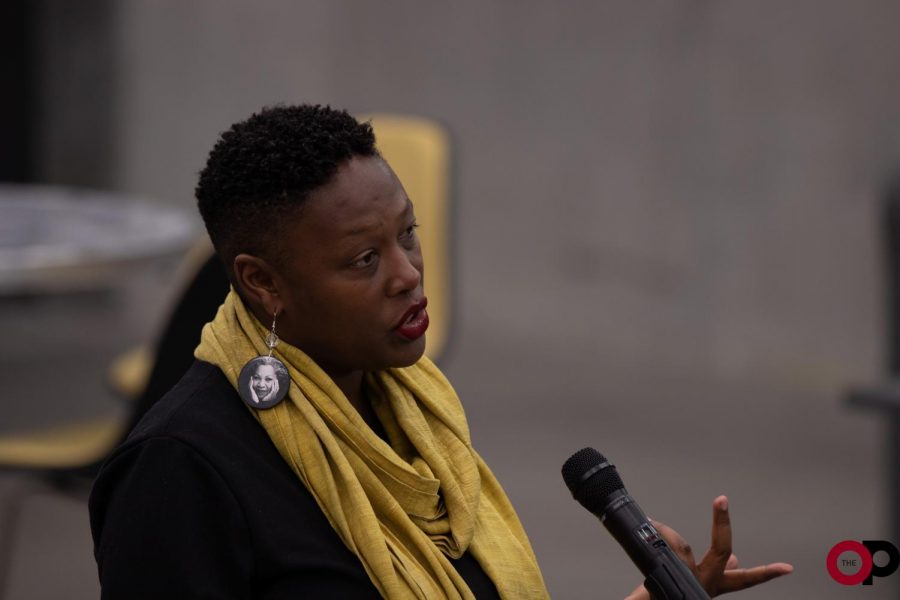OU Center for Public Humanities launches its first event, screening Toni Morrison film
Poet and Kresge Fellow Nandi Comer introduces the screening of the Toni Morrison film “The Pieces I Am” on Thursday, Oct. 17
In celebration of National Arts and Humanities Month, Oakland University and the College of Arts and Sciences recently announced the founding of a new Center for Public Humanities. It is considered the first humanities center in the state of Michigan to exclusively focus on the public humanities.
Public humanities is the work of engaging diverse publics in reflecting diversity and history, and the relevance of the humanities to the current cultural life. This center at OU serves to advance excellence in public humanities and the arts to support and enrich Southeast Michigan’s diverse learning communities.
Andrea Knutson, co-director of the Center for Public Humanitie and associate professor of English, founded the center with a purpose of providing a sense of diversity.
“I believe a university should be an integral part of its neighboring communities,” Knutson said. “That can happen if it thinks of itself as not simply providing an education to its students, but as an institution that connects with students’ families and neighbors, and therefore becomes more attuned to its region’s aspirations.”
Knutson and her co-director, John Corso Esquive, have spent the last year having conversations with OU faculty and students about the organization of the center. This assured them of the need and purpose of the center and allowed them to finalize the center’s vision, according to Knutson.
“Students and faculty are a major part of how the Center for Public Humanities conceives its role in OU’s surrounding communities,” Knutson said. “They are the bridge to a region’s prosperity.”
The center is exclusively focused on public humanities. With OU students and faculty being an integral part of the center’s vision, Knutson tried to approach them in differing ways. Screening a Toni Morrison film was their first attempt at reaching out to the diverse community of OU.
As one of the most tireless advocates for the arts and humanities, Toni Morrison became the first black woman to receive the Nobel Prize in literature, according to the Washington Post. During her career, African American women were the heart of her writing when they were oftentimes relegated from the society of literature and their communities.
Nandi Comer, former lecturer at OU and a poet, introduced the film that evening. Comer wrote a poem for the occasion and spoke about how important Morrison was to the world of literature, especially to African American women writers.
“I was incredibly struck by her ability to speak to critics that thought it was something wrong with her writing as a black woman writer for and about black readers,” Comer said.
The film was an in-depth look at Morrison’s life. It provided the opportunity for students to track the success of her work and the long path toward being recognized by the writing world, according to Comer.
“There was a moment when a scholar said that no one ever says that about Irish writers, and that they only write about Irish people. But somehow, when it comes to Morrison, it is a limitation that she writes about black life,” Comer said.
The center is currently in the process of constituting a community advisory board and student advisory committee.
“[They] will be key groups who direct the center’s programming. We’re so excited to start programming with these groups’ guidance,” Knutson said.








